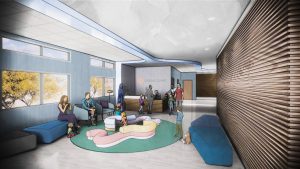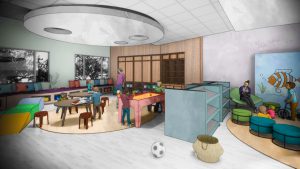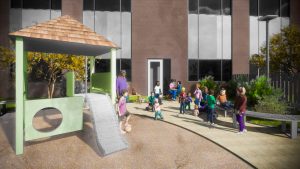Lorenz Clinic is excited to announce the launch of Intensive Outpatient Programs (IOP) for current and future clients. The vacuum in the Twin Cities metro area for IOP programs such as these has become overwhelmingly apparent. As a leader in providing and expanding access to mental health resources for the communities the Clinic serves, Lorenz has worked quickly to make staff and space available to accommodate this immediate need.
An Adolescent IOP began in December 2022 out of the Rosemount clinic location. Space for the Adolescent IOP group is still available. Lorenz is working towards adding an Adult IOP, which will begin in Rosemount, in spring 2023. As staffing and resources become available, Lorenz will expand these services to additional locations.
Why IOP at Lorenz
The program’s purpose will be to treat problems, not just symptoms. The clinic’s systemic focus will differentiate this program from others in the area in that the IOP will feature concurrent parent education, family therapy, and robust, eco-systemic discharge and step-down planning. There will be close integration between the IOP and the Clinic’s other services including psychiatry, psychological testing, and outpatient psychotherapy.
Who might benefit from IOP
- Client is struggling to see progress in current outpatient psychotherapy.
- Lorenz Clinic’s Adolescent IOP is specially built for adolescents ages 13-17 who may be experiencing mood disorders, anxiety, depression, school, and relationship difficulties.
- The Adult IOP will be well-suited for individuals ages 18+ who may be struggling with mood disorders, anxiety, depression, relationship difficulties, and occupational stress impacting one’s mental health
- Average length of stay in IOP is 4-6 weeks with treatment including group therapy, psychoeducation, family therapy, medication consultation, family support, and thorough aftercare planning.
- IOP is specifically designed to offer professional and peer support, to aid both the client and the family as a whole.
- Lorenz is building a community for families and clients to engage with one another in order to better normalize and support clients in achieving their goals.
Accessing the Service
Care and assessment begin with a call. Clients will be scheduled with an intake appointment to determine if IOP is the right level of care. The clinic will work with potential clients to determine insurance eligibility and scheduling.
Anyone interested in Lorenz Clinic’s IOP services should call 952-443-4600. Questions can be directed to the Director of Outpatient Psychotherapy, Lindsay Fiedler-Schiel.
 elity and demonstrable clinical outcomes. Young children often require access to various levels of care, and these changes will offer families a more seamless experience of what for many has become an inaccessible and
elity and demonstrable clinical outcomes. Young children often require access to various levels of care, and these changes will offer families a more seamless experience of what for many has become an inaccessible and The day treatment program will be based on the treatment practice of Developmental Repair, an intensive treatment model that was developed by Dr. Anne Gearity to treat children who have experienced early complex trauma and are displaying aggressive and disruptive behaviors (Gearity, 2009). The treatment model will be used to treat children ages 3-7 in a day treatment program, three hours a day, five days a week. Through Developmental Repair, day treatment will target 4 main areas of functioning: relating, feeling, thinking, and acting. With a combination of group therapy and group skills training, children will move through a daily routine that includes art projects, snack, large motor play, structured learning activities (books, puzzles, and games), and school work. Each child will have individual goals created through collaboration among mental health professionals, clinical trainees, and/or mental health practitioners, and caregivers.
The day treatment program will be based on the treatment practice of Developmental Repair, an intensive treatment model that was developed by Dr. Anne Gearity to treat children who have experienced early complex trauma and are displaying aggressive and disruptive behaviors (Gearity, 2009). The treatment model will be used to treat children ages 3-7 in a day treatment program, three hours a day, five days a week. Through Developmental Repair, day treatment will target 4 main areas of functioning: relating, feeling, thinking, and acting. With a combination of group therapy and group skills training, children will move through a daily routine that includes art projects, snack, large motor play, structured learning activities (books, puzzles, and games), and school work. Each child will have individual goals created through collaboration among mental health professionals, clinical trainees, and/or mental health practitioners, and caregivers. Each day treatment room will be comprised of up to 6 children and 2-3 trained staff. The day treatment team will have day treatment specific consultation at least one time per week for 1.5 hours. Consultation will be provided by a mental health professional trained in Developmental Repair.
Each day treatment room will be comprised of up to 6 children and 2-3 trained staff. The day treatment team will have day treatment specific consultation at least one time per week for 1.5 hours. Consultation will be provided by a mental health professional trained in Developmental Repair.